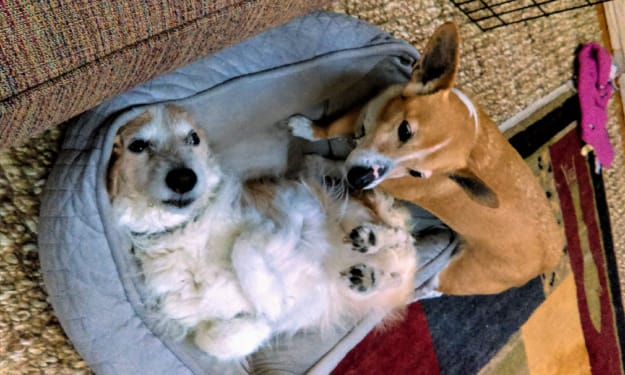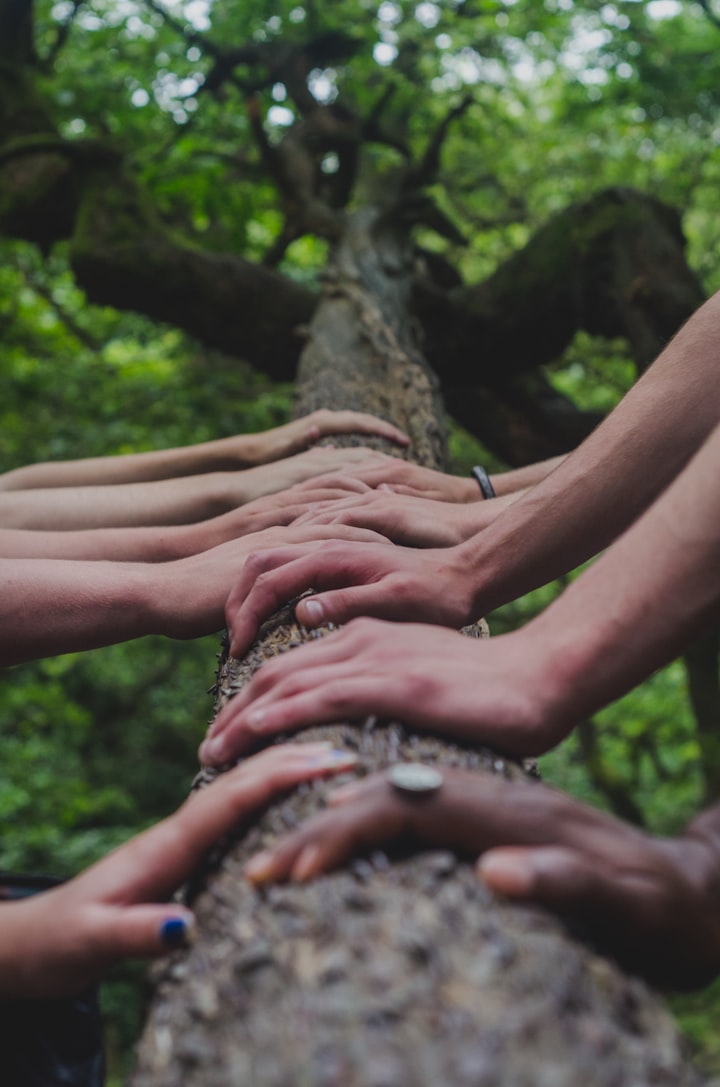The Evolution of Healing
Take the lesson, leave the trauma

I’ve survived two bouts with melanoma. I’ve also gone 15 rounds, twice, with pulmonary embolisms unrelated to my cancers. Yet, here I am, happier, more compassionate, and as active as I ever was. A friend who was exceptionally lucky with their heart attack reached out.
… a few thoughts on the evolution of the healing process.
They said, I micromanage everything these days, I am terrified to do normal stuff, and I detest myself for giving in to this person inside.
When you experience that terror, especially when you are someone who strives for self-awareness, the urge to micromanage and control for all the variables is 100% appropriate. Everyone who has gone through health care trauma has done it. It starts exactly as you described. Some manage it better than others. Some never get back to square one. We see every tiny decision as a possible step towards another health care crisis. We turn our life into an intricate algorithm of YES-NO decisions which resemble an Escher painting. We behave as if that surrealist work will decide if we are to live or die.
Yet, the truth is far different.
The donut bite you ate two weeks before your heart attack didn’t cause your heart attack. Now, if you eat a dozen of donut bites at a time, a couple of time each week, you’ve got a serious problem. The one cigarette you smoked in a bar when you were a college sophomore didn’t cause your lung cancer. But the pack a day you’ve smoked since then did. Those are called bad lifestyles.
Yet, with the exception of lifestyle diseases, a whole lot of our ‘bad luck’ isn’t luck at all. Or related to anything we did. Or didn’t do. It is random. Like winning the lottery. Or for most of us, NOT winning the lottery.
Your body has 37 trillion cells, and at any given time, the vast majority of them reproduce their DNA just fine. But every so often, a clump of cells misread the directions, send out incorrect info, and you’ve got one of the hundreds of kinds of cancer out there. A minor kink in an important blood vessel snags some extra stuff floating in your blood, you throw a clot, and you stroke. A weak spot in a cranial blood vessel pops and you get an aneurysm.
In short, given the complexity of the human body, it is extra-ordinary that any of us make it from infant to adult. All the bad stuff that can happen, lifestyle aside, is just a whole lot of randomness inside an 8 pound, 22 square foot bag of skin.
Humans, we hate random.
Whether through education or meditation or prayer or self-talk or therapy, the sooner you learn to accept the randomness of life, the sooner you will cease your attempts to micromanage each moment. That effort makes you paralyzed with anxiety. When you accept that life is very much a series of random and uncontrollable events, the sooner you will be able to live life as a much more sage individual.
What about those who cannot or will not take that step; the people who hang onto their trauma? Their trauma destroys the soul of their life because they do not or cannot or will not inculcate the lesson of randomness into their life. They poison the rest of their life with fear and the inability to live in the moment.
You ask, Okay, random. Got it. But what’s the big takeaway?
The big takeaway, the lesson, is that we all most assuredly die. Sadly, this is the lesson most of us never get. The host of us who have survived major health trauma have received that teaching. Equally sad, too many survivors cannot or will not accept the reality of that teaching. And yet, when your moment of enlightenment appears, joy opens up in front of you. You finally understand the meaning of "each moment matters." It’s a flash of wisdom, of reality, the “This is how life truly is” that opens your eyes to real life and real love.
I suspect it is a teaching that nearly all of us accept in the moments before we die. The sudden clarity reported by near-death experience survivors, the life and light flashing before the eyes? That might well be the when you die, on your deathbed, you will receive total consciousness that Carl Spackler has goin’ for him. Which is nice. Gunga galunga, indeed.
For those of us given the gift of second life, my wish is that you take the teaching to heart, and live it every day.
You ask: Is that it, then; that nearly dying can be a blessing?
You have to take the lessons of nearly dying into your soul and leave the terror and the trauma behind. Unfortunately for most, the letting go is the hardest part. Humans, not only do we hate random, we hate to let go of stuff. We have boxes, unopened boxes that we packed up three house moves ago that we’ve never unpacked, and 25 years on, we still cart those boxes around. We still feel embarrassed when we think back to something that happened at a birthday party when we were eight. We must love to lug stuff around in our soul; we do so much of it.
When you realize the two, the trauma and the lesson, are not attached, that a dichotomy does exist between the lesson of nearly dying, and the trauma that gave you that lesson, then your life begins with a vengeance for good and truth. You begin to see the world with possibility as it truly is.
Good things ahead I see for you.
About the Creator
David Louis Stanley
Educator.Poet.Author.Writer.Voice-for-Hire.
Husband.Father.Friend.
Thinker of thoughts who gets stuff done.
Melanoma Awareness Advocate.
Three books in print.
Never miss a chance to do good.
I write sonnets.
I’m bringing sonnets back.™






Comments
There are no comments for this story
Be the first to respond and start the conversation.